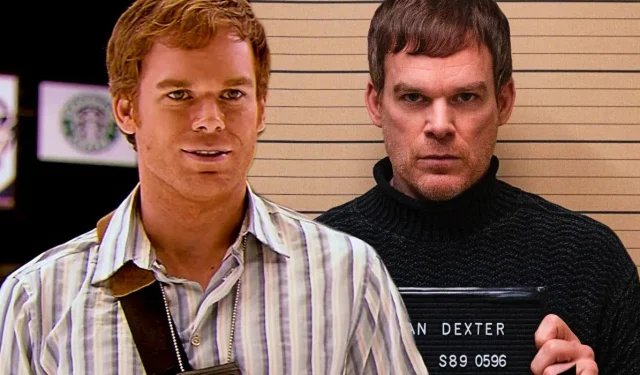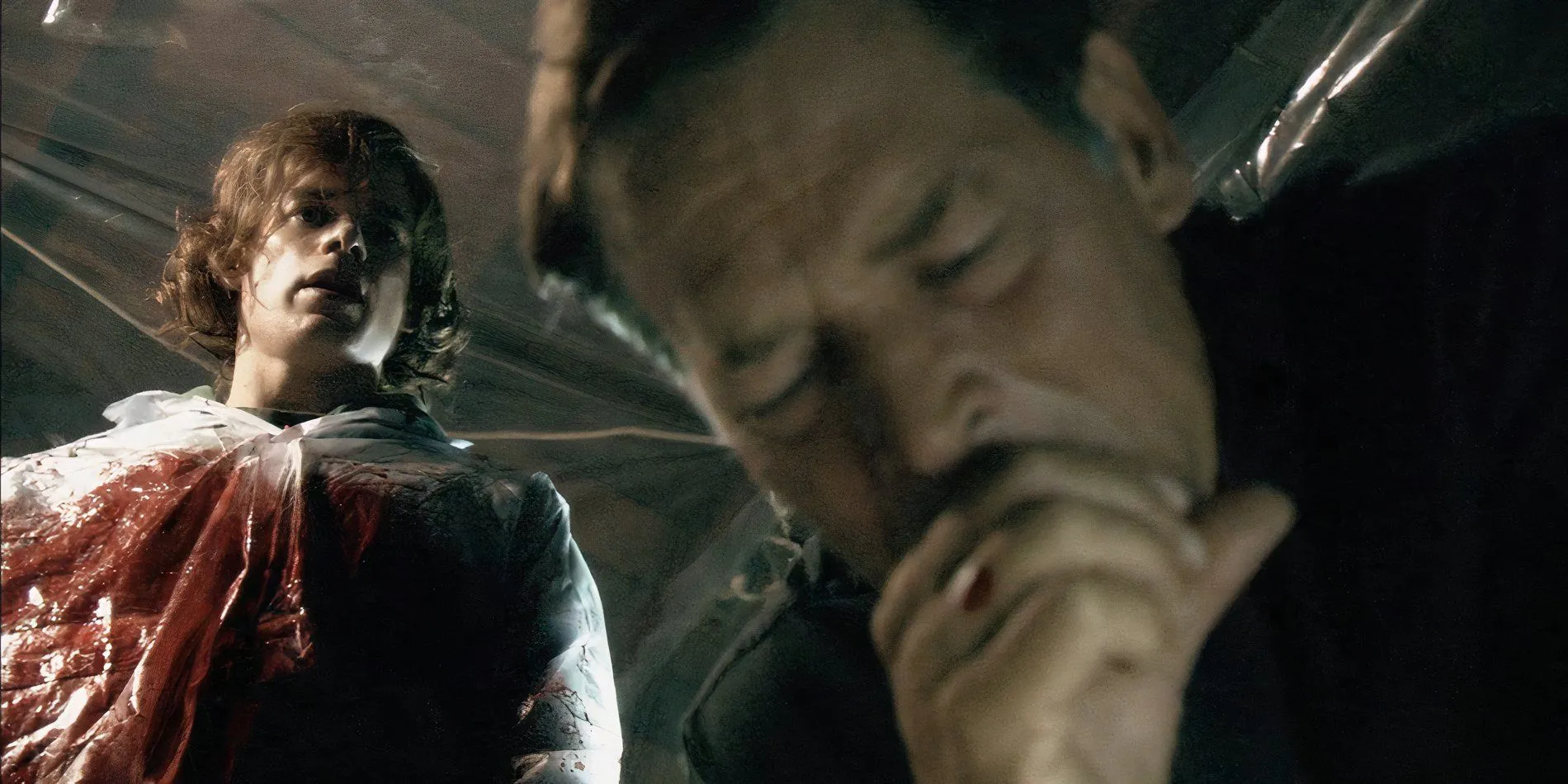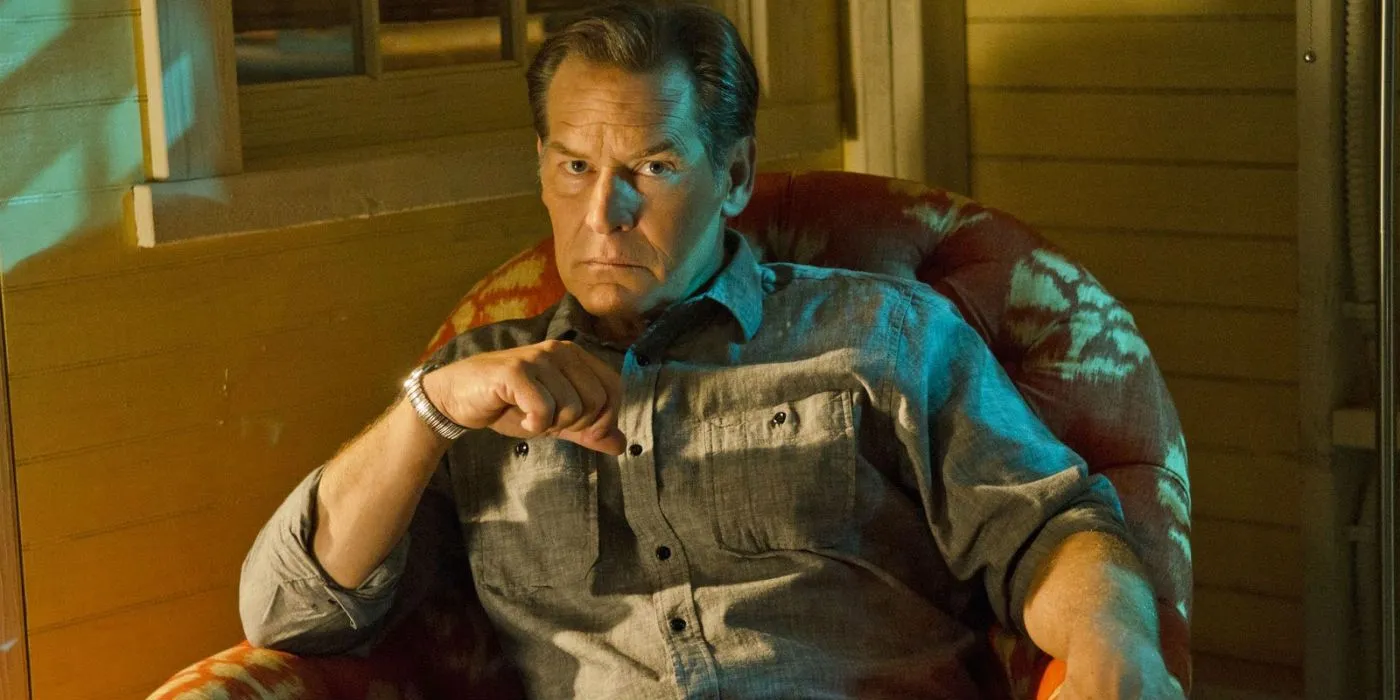
The Guiding Code of Harry Morgan in *Dexter*
*Dexter*, the iconic series, features its central character, Dexter Morgan, a vigilante serial killer guided by a stringent moral code established by his adoptive father, Harry Morgan. This code fundamentally shaped every decision in Dexter’s life, particularly after he experienced a traumatic event in his early childhood when he discovered his mother’s murder. The horrific scene initiated the emergence of Dexter’s “Dark Passenger,”a term for his compulsive urge to kill. To channel this dark aspect into something redeeming, Harry Morgan devised a set of rules, allowing Dexter to hunt down those who eluded justice.
In Season 8, it’s revealed that the Code was further refined with the assistance of Dr. Evelyn Vogel, who recognized Dexter’s sociopathic tendencies early on. Convinced that his son might otherwise face life imprisonment or the death penalty, Harry took it upon himself to redirect Dexter’s violent impulses to target other murderers. Yet, this paternal protection came at a dire personal cost, leading Harry to ultimately succumb to his inner turmoil, culminating in his suicide.
Rule One: Don’t Get Caught
Harry’s Teachings on Evading Capture

The cornerstone of Harry’s code is unequivocally the first rule: “Don’t get caught.” Dexter understands that being apprehended would lead to severe consequences, including imprisonment or execution. To instill this lesson, Harry once took young Dexter to witness an execution, emphasizing the gravity of their situation. Consequently, every subsequent rule in the Code aims to uphold this primary directive.
Dexter frequently echoes the sentiment that the first two rules are paramount. Following the fundamental guideline are strategies like “leave no traces or evidence,” “fake emotions and normality,” and “never make a scene,” all aimed at maintaining his facade and ensuring his survival. These precautions reflect Harry’s deep concern for Dexter’s well-being, signifying that the majority of the advice left for him served to avert potential imprisonment or even worse outcomes.
| Harry’s Code Rule Ensuring Rule One is Followed | Episode Reference |
|---|---|
| Blend in socially; maintain appearances. | Season 1, Episode 4, “Let’s Give the Boy a Hand” |
| Fake your emotions and normality. | Season 1, Episode 5, “Love American Style” |
| Be prepared; leave no traces or evidence. | Season 1, Episode 1, “Dexter” |
| Never make a scene; stay calm and collected. | Season 4, Episode 12, “The Getaway” |
| Don’t make things personal; avoid clouded judgment. | Season 2, Episode 5, “The Dark Defender” |
| Avoid emotional involvement. | Season 1, Episode 10, “Seeing Red” |
The essence of Rule One extends to Dexter’s need to assimilate into society, portraying a “normal” persona. He is trained to suppress evidence of his darker inclinations, including his methods—using drugs like M99/Ketamine to eliminate traces of his crimes. By adhering to Rule One, Dexter can continue his mission, provided he approaches his actions with calculated precision.
Rule Two: Never Kill an Innocent
Ensuring Safety from Dexter’s Dark Side

The subsequent rule, “never kill innocents,”serves as an ethical safeguard, preventing Dexter from succumbing to a traditional serial killer’s tendencies. Harry Morgan’s commitment to protecting society from his son was unwavering. Harry believed that Dexter could harness his dark impulses positively, but strict adherence to this rule was crucial. This means that Dexter’s victims must always be carefully selected, ensuring they are guilty of heinous acts themselves.
While Dexter adheres to this guideline in most instances, there are occasions where the necessity of maintaining his secrecy may cause him to violate it. This notion is acknowledged throughout the series, with flashbacks revealing Harry’s awareness that the strict adherence to his code might come into question when Dexter was forced into difficult situations.
Rule Three: Targets Must Be Killers Who Evaded the Justice System
Criteria for Target Selection

Harry’s guidance wasn’t only about who Dexter shouldn’t kill, but also about ensuring that his victims were distinctly verifiable criminals. The Code stipulated that Dexter could only target those previously acknowledged by the authorities as dangerous individuals who evaded justice. This insistence denied Dexter the opportunity to act as a vigilante judge based solely on his instincts.
Harry wanted Dexter to not only target killers but to also perform due diligence through comprehensive research to confirm the status of any intended victim. This rule acts as a necessary filter for ensuring that Dexter’s actions align with the remits of a moral avenger rather than a reckless executioner.
Rule Four: Killing Must Serve a Purpose
The Ethical Foundation of Harry’s Code

The principle that “killing must serve a purpose”is arguably one of the most significant foundational rules. Although Harry Morgan was inherently opposed to murder, he understood the unfortunate reality that the justice system sometimes fails to bring killers to justice. His knowledge led to the creation of this code, allowing Dexter’s impulses to serve societal good rather than personal revenge.
Clearly enshrined in the rules, Harry emphasized that Dexter’s killings must occur only when a discernible purpose exists. Without a justifiable reason, any killing would merely represent “plain murder.”Thus, Dexter’s mission becomes a quest for righteousness, balancing the scales of justice rather than being driven by vendetta.
Rule Five: No Preemptive Killing
Prohibiting Anticipatory Actions

Among the various stipulations that Harry left for Dexter, the rule against “preemptive killing”is particularly striking. Harry recognized that Dexter’s keen insight into the minds of killers often led him to identify potential threats ahead of solid evidence. This foresight prompted Harry to ensure Dexter never acted upon mere suspicion—proof was indispensable.
This rule stipulates that Dexter cannot engage in anticipatory actions based on his intuition; any killings must be grounded in verified transgressions. This maintains the integrity of Harry’s moral framework amidst the complexities of vigilance against crime. In the *Dexter* episode titled “Seeing Red,”Dexter reflects on Harry’s clear directives and admits the temptations he sometimes faces in contravening this rule. As the *Dexter: Original Sin* prequel series approaches its premiere in December, fans eagerly anticipate deeper explorations into the origins of Harry Morgan’s code and the intricacies behind each guideline.




Leave a Reply